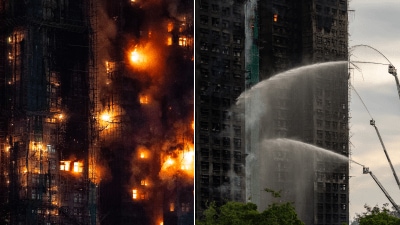Armed Forces to cut reaction time of medical units to an hour
The Armed Forces are working to cut down the reaction time of their medical services to respond to a terror attack...

The Armed Forces are working to cut down the reaction time of their medical services to respond to a terror attack to under one hour after the 26/11 attacks. A top Armed Forces medical officer has said efforts have been made to streamline the system to cut down the emergency reaction time from the current two hours.
The forces are looking at various options, including a dedicated air lift for specialised medicine teams at the five Command hospitals in the country, and a ready drugs and equipment inventory at all these locations to cut down reaction time.
“We are streamlining the system so that the reaction time is cut down from two hours to one hour. We are streamlining the processes at all command hospitals,” said Lt Gen Yogendra Singh, the Director General of Armed Forces Medical Services.
While the Armed Forces medical branch was not involved in providing relief after the attack, it has dedicated ‘first responder’ teams in Delhi that can be mobilised within hours. The team last saw action after the bombing of the Indian embassy in Kabul in July when eight medical officers, including a surgical team, was dispatched by a special aircraft. “We had got a team ready within two hours after the attack as we were expecting a large number of casualties. Now the aim is to cut down the reaction time even more,” the Lt Gen said.
After the Mumbai carnage, command hospitals in Kolkata, Chandigarh, Bangalore, Udhampur, Lucknow and the naval hospital at Mumbai have been told to have teams on standby. A drug list has been prescribed for all these teams and equipment has been set aside for quick response.
“The earlier concept was a reaction time of six hours that has now been cut down to two hours and now we are looking at responding within an hour. The aim now will be to respond within 15 minutes with perhaps the help of an air unit,” the Lt Gen said.
The Armed Forces medical services have also moved a proposal to equip all hospitals with at least one state-of-the-art ambulance with critical care facilities to respond faster. “A proposal for new ambulances at all hospitals has been approved in principle by the Army Chief,” Lt Gen K Parmar, who is set to take over as the new DGAFMS in March, said.
- 01
- 02
- 03
- 04
- 05































